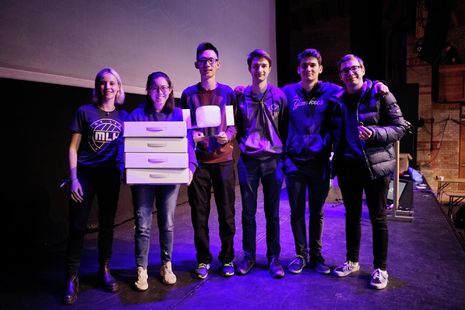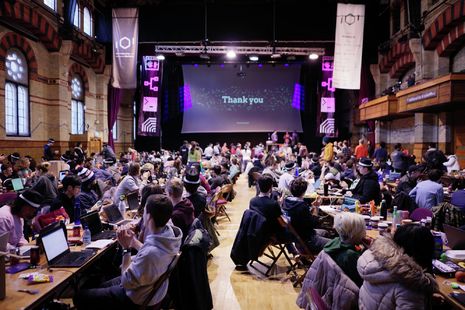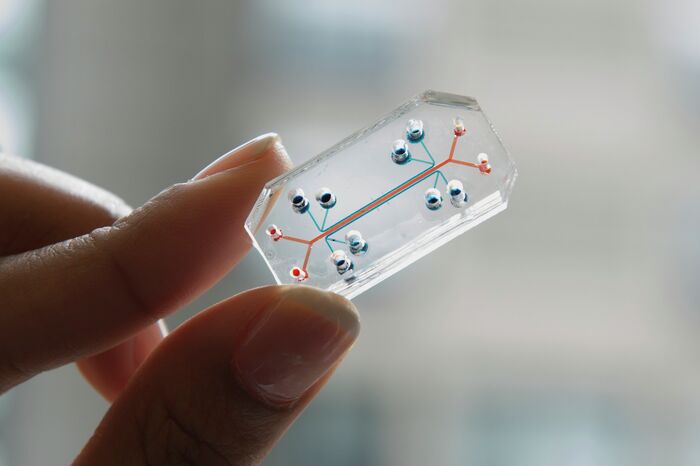Hack Cambridge: 24 hours and 300 hackers, designers and programmers
Participants from Cambridge and universities all around the world took part in the hackathon last week, Vianca Shah reports

Last week, computing enthusiasts were tasked to code a project, potentially with people they had never met before, in a mere 24 hours at Hack Cambridge, the annual hackathon run by the University. Teams of students work together to solve a problem by building a prototype, bringing thoughts to life as they collaborate to realise a vision that could potentially have a large social impact.
This year was the fifth year running with more than 300 hackers, designers and programmers from Cambridge and universities all around the world taking part in the hackathon held at the Corn Exchange. Apart from the coding experience, students learn lots from each other and the new friends they make.
Tim, the manager running the event, explained that, for many students – particularly those studying Computer Science – the hackathon provides good exposure to computing in a theoretical way. It is a chance for students to use this theory collaboratively, and in a way that develops their academic skills but also their own drive and passion for computing.
This year marked a step forward for the event with diversity as a key point on the agenda. One of the organisers, Sumaiyah Kola, described how they used a “new algorithm that [aimed] to accept more women without affecting the quality of hackers,” and how they reached out to various university societies that encourage diversity and empower minority groups in tech.
Within just 24 hours, teams produce high-standard projects with potential commercial value; this year in particular, many teams focused on environmental challenges. One team I spoke to were producing a prototype that analyses the carbon footprint of any consumer item, allowing people to be more conscious of the food they eat and the impact of their actions as a consumer. The team – Wassil Janssen, Zhe Xuan Chua, Felicia Tai and James Thompson – went on to win the event with their app, “carbon-calculator”.

I ask Ben from Jesus (here at his second Hack Cambridge) what advice he would give to other students, whether they be computer scientists or simply programming enthusiasts. He says that everyone should just go for it. He explains that he has met so many new people over the two years, and loves putting himself forward to be in a new team full of people he doesn’t know so he can meet even more people and improve his skills further.
23 hours in with 1 hour left to go, despite their fatigue, everyone was working hard to add the finishing details to their project. It had been a long night but everyone was excited to see each others’ projects and have their own out on display.
Once time is up, submissions are cut off and the judges evaluate the projects and make their decisions. Every group, no matter whether it was their first or their third Hack Cambridge, have made the most of every minute there and created incredible projects that showcase their skills and expertise.
Even for those who are experienced in Hackathons, teaching and sharing knowledge with the newcomers is an invaluable way to share what students have gained. On the flip side, even those who are experienced are pushed out of their comfort zone in every Hack Cambridge.
Hack Cambridge involves students with a variety of skills and interests. As Tim explains, you don’t even have to know how to code to be part of the team! They are focused around projects where computer science skills are needed, but information technology, engineering, social sciences and even medicine have been useful in all sorts of projects to use the computer skills the students have to implement something that will benefit the community and the environment.
For many, this is a chance for them to use their skills to create something to give back to the community and, as Tim remarked, this year the focus shifted markedly towards the place for computing in the fight against climate change.
A massive congratulations should go to everyone in Cambridge who participated in the event. For many, the event is a source of inspiration – many leave the event with new goals and ideas for the future.
 News / Caius mourns its tree-mendous loss23 December 2025
News / Caius mourns its tree-mendous loss23 December 2025 Comment / Yes, I’m brown – but I have more important things to say22 December 2025
Comment / Yes, I’m brown – but I have more important things to say22 December 2025 News / Clare Hall spent over £500k opposing busway 24 December 2025
News / Clare Hall spent over £500k opposing busway 24 December 2025 Interviews / Politics, your own way: Tilly Middlehurst on speaking out21 December 2025
Interviews / Politics, your own way: Tilly Middlehurst on speaking out21 December 2025 News / King appoints Peterhouse chaplain to Westminster Abbey22 December 2025
News / King appoints Peterhouse chaplain to Westminster Abbey22 December 2025









